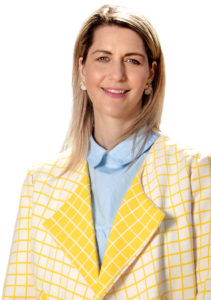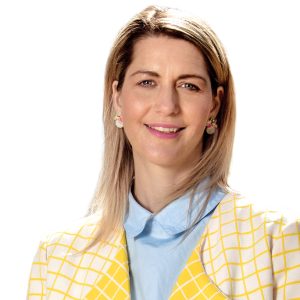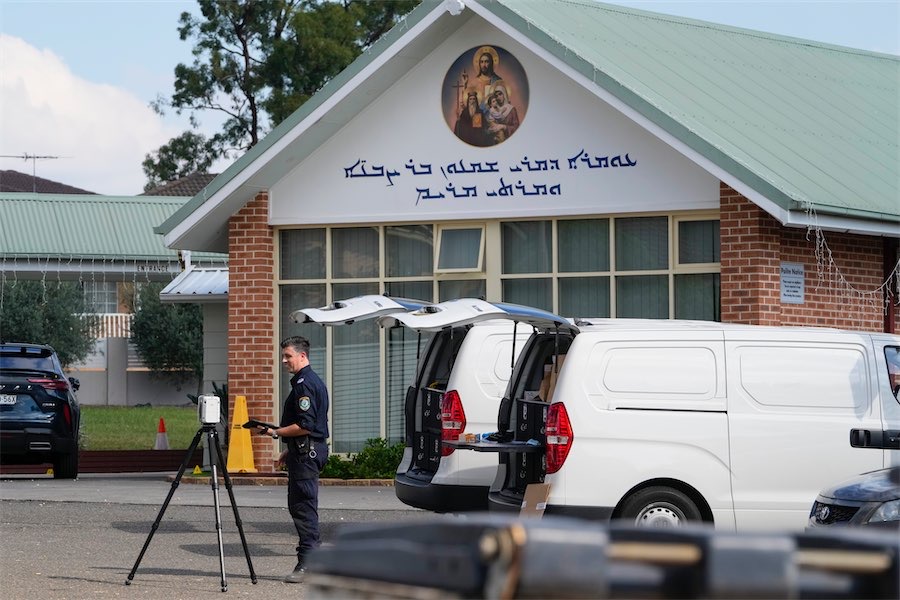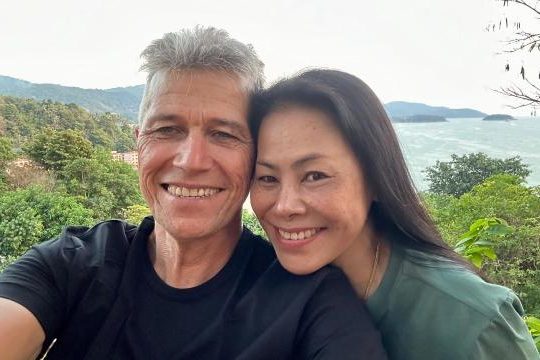Political reporter BELINDA STRAHORN reflects on Saturday’s election result and its implications for the future of the ACT.
A QUESTION mark hangs over the immediate future of Liberal leader Alistair Coe following his party’s unexpected poor result in Saturday’s ACT election.

Suffering a 3.6 per cent swing against them, the Canberra Liberals flawed campaign strategy is bound to be dissected in coming days, as the party comes to terms with losing the election to an almost two-decade-old Labor administration, which has overcome any “It’s time” factor to hold on to power until 2024.
Canberrans punished the Liberals across the territory, choosing instead to place their trust in ACT Labor to continue governing for another four years.
The election outcome this time was clear early in the night, with ABC election analyst Antony Green predicting Labor had been returned before 8pm.
At the close of the count on Saturday night, Labor had 10 confirmed seats, the Liberals eight and the Greens three, with a further two seats in Brindabella and Ginninderra in doubt. By Monday, the Greens had picked up a further two seats, one in Kurrajong and the other in Ginninderra taking their total to five. No matter the outcome of the final two seats, it is clear that Labor will go on to form a minority government with the Greens.
While Labor received 38.1 per cent of the total vote, and the Liberals 33.6 per cent, the big winners on election night were the ACT Greens who picked up 13.6 per cent of the vote and quintupled their parliamentary representation, securing seats in four of the five electorates so far, giving party leader Shane Rattenbury a clear mandate to help shape the direction of the new government.
Labor leader Andrew Barr was comfortably returned as chief minister, leading his party to an historic sixth consecutive term in office.
Barr, who polled the highest of any candidate this election, overcame his opponents’ attempt to label the government he led as a stale and tired administration. The Liberals’ strategy of capitalising on an “Its time” factor playing in its favour came to nothing as voters endorsed more of the same.
At the Belconnen Labor Club, Barr told members on Saturday night he accepted victory with “humility”.
“It’s a humbling experience to lead a political party and to lead a government,” he said.
“Twenty twenty has thrown so much at us and tested everything.
“Canberra has turned to a strong and experienced government and voted to return a Labor government.”
At the other end of town, the Canberra Liberals gathered at the QT. It was always going to be a subdued affair once the outcome of the election was clear early in the count.
Leader Alistair Coe and his wife Yasmin entered their party function to be met by a room full of disappointed faces. The mood dampened no doubt by the harsh reality that achieving government was beyond their reach for the sixth consecutive election.
In a gracious concession speech, Coe, 36, spoke of his 20-year association with the Liberals and thanked his team of candidates who remembered the “forgotten people of Canberra”.
“Our campaign was true to our values and it was positive,” Coe said.
“The campaign was next level in terms of professionalism… we received negative attacks but that’s to be expected.
“It’s been the greatest honour of my life to lead the Canberra Liberals and I look forward to doing all I can to hold this government to account.”
The Liberals’ campaign, which focused entirely on cost of living pressures, clearly didn’t resonate well with voters and failed to deliver the electoral victory many long-suffering Liberal supporters had hoped for.
While Coe’s current and former colleagues defended the Liberals campaign, his ongoing leadership of the party must surely come into question now given the disappointing result.
As with every ACT election, the parties enjoyed mixed results across the five electorates, some suffering setbacks in key seats, while in others the voters delivered a status quo outcome.
It was clear early in the count on Saturday that something had gone horribly wrong in the Liberal’s former stronghold of Brindabella. With 80 per cent of the vote counted, the party had suffered a four per cent swing against it, whereas Labor had benefited from a 7.5 per cent swing towards it. Labor’s Joy Burch and Mick Gentleman and Liberals Mark Parton and deputy leader Nicole Lawder, the four MLA’s from the last Assembly, were returned. But the loss of the Liberal Andrew Wall was a huge setback to the party’s chances of forming government. Losing Wall in Brindabella meant they now had to pick up an additional seat elsewhere to negate the loss.
The final seat in Brindabella remains a showdown between Labor’s poster boy, Taimus Werner-Gibbings, who received half a quota, and the Greens’ Johnathan Davis. Werner-Gibbings is at this stage favoured to secure the final position.
Labor claimed its increased vote in Brindabella was due to its commitment to the tram down south, but retiring Liberal MLA Vicki Dunne was at a loss to explain why there was an unexpected swing away from the Liberals in Brindabella.
Dunne joined Labor candidate Rachel Stephen-Smith and Green’s leader Shane Rattenbury on the panel for the ABC’s election coverage.
“I’m surprised by those figures,” Dunne explained.
“That’s not the sort of figures we would expect to see in Brindabella.”
The Liberals’ chances of forming government received an even bigger setback in Murrumbidgee where they suffered a nine per cent swing against them. Coe’s strategy to form a majority government hinged on picking up a third seat in Murrumbidgee.
While former leader Jeremy Hanson polled reasonably well, his colleague Guila Jones struggled to be re-elected.
Labor suffered its own loss with Bec Cody being replaced by academic Marisa Paterson. Emma Davidson was elected for the Greens filling the void left by retiring MLA Caroline Le Couteur.
Independent candidate Fiona Carrick did very well but lost out of preferences because she didn’t run a group ticket.
The decision by former Liberal leader Bill Stefaniak to run as Belco Party convenor in Ginninderra meant that the Liberals also had an uncomfortable night in that seat. Dunne criticised Stefaniak’s decision to run in the electorate which cost the Liberal’s votes and meant their second candidate, Elizabeth Kikkert, just scraped back.
“It was misguided that Bill Stefaniak ran,” Dunne said.
“He carved out four to five per cent of our vote and didn’t make it easy for us.
“The road to victory is a narrow path for the Liberals, we recognise that everything has to go right for us.”
It clearly didn’t.
Labor deputy leader Yvette Berry and Tara Cheyne were comfortably re-elected with the party only registering a negligible swing against them in Ginninderra. Berry picked up the highest personal vote in the electorate at 15 per cent. The Greens’ Jo Clay has also picked up a seat. The Liberals second position in Ginninderra is under threat with a strong challenge from Labor. There is a two-way contest between Labor’s Gordon Ramsay and the Liberals’ Peter Cain.
In Labor’s heartland, the Liberals suffered an almost seven per cent swing against them and the Greens picked up a three per cent swing to them.
Of the nine per cent of the vote that the Belco Party received, about seven per cent of that were people who voted for the Liberals last time, which confirms Vicky Dunne’s assessment that Belco Bill cost the Liberals key votes in Ginninderra.
Liberal leader Alistair Coe would have been pinning his hopes on a strong showing in his own seat of Yerrabi to provide a solid platform for his party to form government.
The Liberals secured a four per cent swing in its favour, but Coe failed to secure a quota in his own right receiving 0.95, which is a poor result by a party leader looking to form government.
Country music singer Leanne Castley won a seat in Yerrabi for the Liberals, replacing former member James Milligan.
Labor’s Suzanne Orr was re-elected as was Michael Pettersson, but despite his running a decent campaign, countback Deepak-Raj Gupta didn’t pull through this time, with Labor suffering a 10 per cent swing away from them in the seat.
Labor’s vote may have taken a hit in Yerrabi because the DLP appeared to the left of Labor on the ballot paper, which according to Antony Green, would have drawn support away from Labor.
The Greens’ Andrew Braddock won a seat, with a three per cent swing to them in Yerrabi.
Despite suffering a modest swing against them in Kurrajong, the Liberals lost Candice Burch due to a strong showing for the Greens.
Andrew Barr’s own personal popularity was enough to bring Rachel Stephen-Smith with him and Shane Rattenbury’s profile helped elevate Rebecca Vassarotti.
Elizabeth Lee was returned, but the Liberals suffered a three per cent swing against them. The Canberra Progressives polled strongly in Kurrajong receiving five per cent of the vote.
Saturday’s election was remarkable for a number of reasons, not the least of which was the fact that 70 per cent of Canberrans chose to vote ahead of election day, opting to cast their vote during pre-poll.
It was anticipated that only 80,000 ballot papers would be issued on election day across 82 polling places. It was arguably the lowest turnout for the ACT election on the day ever.
Saturday’s result confirmed that the Greens had run a good grassroots campaign that paid off handsomely for the party, picking up new members in the process.
The Greens will no doubt be pressing to have a greater say during this term of government than the last on the back of this result. A suggestion that Rattenbury should become deputy chief minister was quashed by Barr early on Monday, however it’s believed the Green’s leader will take a senior cabinet role.
On election night, at the Polish Club in Turner, Rattenbury addressed the party faithful.
“This year has been a year that’s not looked good, but tonight bucks that trend,” he said.
“Tonight Canberrans have voted for a better normal.
“Picking up extra seats gives us the capability to work on the policy we want, too.
“Along the trail we received feedback about how things are going and we need to take that on-board to do better and do more.”
By all accounts, the election outcome confirms that the electorate believed Barr had done a good job of managing ACT through the pandemic. The fact that Labor didn’t suffer a big swing against it provides further evidence that in times of uncertainty voters favour the return of incumbent governments.
A similar result played out across the ditch in NZ and opinion polls suggest a similar outcome in Queensland at the end of the month.
However, the sobering reality is that Saturday’s election has returned a Labor/Greens government still faced with a large budget deficit, a failing hospital system, appalling indigenous incarceration rates and infrastructure backlog that must be addressed during the next four years.
Barr used his victory speech to begin to outline his agenda for the next term of government centred around jobs, covid and climate change. He also attempted to set some boundaries with The Greens over their level of influence over his Labor government.
Barr was quick to stamp the Labor brand on the new government he will lead with the help of the Greens.
While Canberrans were clearly reluctant to change government during a pandemic, it should not be lost on anyone that the Liberals campaign was rejected by the electorate with many voters not buying their message of cost-of-living pressures if this came at the expense of impaired service provision.
In the end, Canberrans were not willing to risk removing a government of 20 years standing for an untried and untested Opposition focused almost entirely on the cost of living in the ACT. Voters rejected not only their policies but the Liberals’ leader.
In the aftermath of the poor result the Liberals will possibly look elsewhere, with the most likely candidate being former leader Jeremy Hanson.
Bitter recriminations within Liberal camp will be underway, analysing what went wrong with their campaign.
The finger will be pointed squarely at Coe and Liberals campaign director Josh Manuatu. The party was heavily criticised during the campaign over its unwillingness to explain how they would pay for their promises, most notably their proposed four year freeze on residential rates and its inevitable impact on services which they failed to adequately address.
The ACT is one of the most sophisticated and well-educated electorates in the country and clearly expected more from its alternative government than goofy campaign stunts and gimmicks. The constant reciting of a campaign slogan like some kind of mantra doesn’t work when people stop listening and that was clearly the case in this campaign.
By contrast, Labor largely managed to stay on message throughout the campaign. Despite being criticised for being boring, it clearly worked. Although not a stunning result for the government, it was a good outcome.
The Liberals are the clear losers from this election, and are sweating on the remaining postal and paper ballots and a favourable preference distribution to inflate their already reduced number of members, potentially from eight to 10.
No matter which way you chose to interpret it, the Liberals are well down on the number of seats they had at the same point four years ago.
However, the real unwritten story of this election outcome is that the Liberals’ chances of winning government at the next election have been made that much harder. This poor showing had gifted Labor and the Greens a potential further term in office beyond this one.
The long-term impact of losing one or two seats at this election means the task of forming government in 2024 is that much harder. While winning one or two seats next time may be possible, winning three or four would probably take two terms, meaning Labor could find itself governing the ACT for three decades.
Who can be trusted?
In a world of spin and confusion, there’s never been a more important time to support independent journalism in Canberra.
If you trust our work online and want to enforce the power of independent voices, I invite you to make a small contribution.
Every dollar of support is invested back into our journalism to help keep citynews.com.au strong and free.
Thank you,
Ian Meikle, editor





Leave a Reply